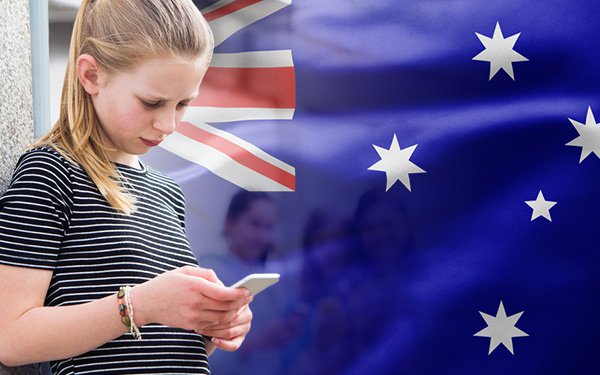
This week, the Australian Government passed a
controversial bill that will force all social-media platforms in the country to ban users under the age of 16, setting a potential precedent for jurisdictions across the globe to regulate Big Tech's
influence over children and teens.
The new laws -- touted as a “world leading” policy approach aimed at protecting young and vulnerable users from unsafe exposure online -- demand that
tech giants like Instagram, Facebook and TikTok bar minors from logging in, or else they could face fines up to $32 million.
The legislation will take effect one year from now. Until then, the
Australian Government will run a trial of methods designed to help enforce the laws, while giving social platforms time to meet the new requirements and updated regulations.
According to the bill, social-media platforms will need to prove that they have taken “reasonable steps” to keep users under 16 off their platforms and will not be allowed to
require users to show government-issued IDs to prove their age.
advertisement
advertisement
However, there are some caveats included in the legislation. For example, messaging apps, online games, and
“services with the primary purpose of supporting the health and education of end-users” will be exempt from the law, which includes YouTube.
Despite the government’s attempt
to help protect the well being of young people, the decision has received widespread criticism from Big Tech and children’s advocacy groups alike.
A Meta spokesperson said the company
was “concerned” about the government's process, which it feels “rushed the legislation through while failing to properly consider the evidence, what industry already does to ensure
age-appropriate experiences, and the voices of young people.”
Snapchat said it will comply with the laws and regulations in Australia, but pointed out that
“many unanswered questions about how this law will be implemented in practice."
As for child advocacy groups, 140 child-safety experts published an open letter earlier in the
week, demanding the government rethink its approach.
“The online world is a place where children and young people access information, build social and technical skills, connect with
family and friends, learn about the world around them and relax and play,” the letter stated. “These opportunities are important for children, advancing children’s rights and
strengthening development and the transition to adulthood.”
Peter Wanless, chief executive of the National Society for the Prevention of Cruelty to Children (NSPCC), an advocacy group in
the UK, said the group understands the concerns about children having access to social media, but that “children deserve to have age-appropriate experiences online rather than being cut off from
it altogether.”
According to Wanless, the new laws “penalize children for the failures of tech companies to make their sites properly safe for young users and deliver
age-appropriate experiences.”
Other child-safety advocates are worried that the government’s outright ban will push bad actors and online predators to other digital spaces, like
messaging and gaming platforms.
The latest poll by YouGov shows that 77% of Australians support the under-16 ban.
It is still uncertain how the Australian government will implement
these changes moving forward, and how many apps in total will be affected by the ban.